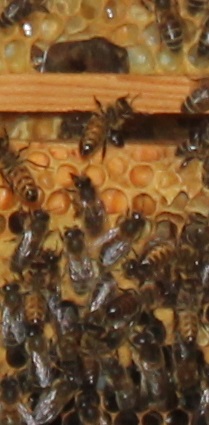Sneak Peek
Bees are important to man in so many ways. They pollinate a large proportion of the food we eat, then provide us not only with honey but a whole range of other products. Not all bees are the same either. Some are more suited to some localities than others. Different types produce different flavours in their honey. Some are stingless, then there are native bees in Africa, Australia and elsewhere that have their own unique characteristics. Beekeeping is a pastime that can be not only interesting but profitable, and certainly environmentally friendly. Through this course you can discover so much more about bees, beekeeping, honey production and using bee products
Lessons
There are 8 lessons as follows; with interactive self assessment tests
to revise what you have learned at the end of each lesson.
Lesson 1- Scope and nature of bees and beekeeping
- Locating a hive
- Types of bees
Lesson 2- Bee biology
- Bee physiology
- Castes and their roles
Lesson 3- Equipment, materials, obtaining bees
- Obtaining bees
- Step by step honey extraction
Lesson 4- The Hive – types, construction, inspection
- The hive
- Choosing the right hive
- Inspecting hives
Lesson 5- Working Bees: seasonal husbandry and harvesting
- Seasonal tasks
- Honey production
- Working with the different bee species
- Review what you have been learning
Lesson 6- Bee Health Management
- Pests
- Diseases
- Viruses
Lesson 7- Bees in the Landscape
- Attracting bees to your garden
Lesson 8- Using Honey and Bee Products
Final Assessment
Learn About Different Types of Bees
 There
are actually thousands of different bee species, and different types of
bees within even a species. Most of our commercial honey comes from the
Honey Bee which is one, widely distributed species. There are other
species though that are also kept for honey production.
There
are actually thousands of different bee species, and different types of
bees within even a species. Most of our commercial honey comes from the
Honey Bee which is one, widely distributed species. There are other
species though that are also kept for honey production.
Within the honey bee species there are many different varieties, some
occurring naturally, and others have been developed over many centuries
by beekeepers. There are also different types of bees, each with
specialised functions, within a species (eg. drones, workers, the queen).
What Do Worker Bees Do?
Workers are well named. Smaller than the queen or drones, the worker
bees are female and perform all the hard work of supporting and
maintaining the hive and make up most of the population within a hive.
They collect nectar and pollen; carry a sting (unlike drones), and have a
wax gland (to make bees’ wax). On their hind legs, they have
specialized spines for carrying propilis (see later). The worker bee
also has a crop (or stomach) separate from the nectar crop, for the
purpose of water collection.
The life of a worker bee is divided into two distinct stages. The first
few weeks are spent as ‘house’ bees, performing tasks within the hive
which change as the worker bee ages. After this, the worker begins a
period of service as a field bee, foraging for nectar, pollen, propolis
and water.
You will learn about the other types of bees and how they interact to produce honey.
Course Features:
- Enrol any time.
- Start studying immediately or later (as you wish).
- Configure your study sessions at any length and frequency you wish.
- Work through at your own pace.
- Help desk - contact via email any time
- Automated
self assessment tests pop up at the end of each lesson. You can attempt
these as many times as you wish; and each time, upon completion, you
can see your results. You will need internet access to complete the self assessment tests.
- At the end of the whole course, you
are presented with a major automated examination which can be attempted
online, anywhere, any time.
- If you achieve a 60% pass in the exam; you immediately receive a downloadable certificate of completion with your name on it.
What will you get from this course?
At the end of this course you will learn how to select bees,
different types of bees, build and inspect hives; you will learn how the
production of honey can be improved, how to avoid pests and more